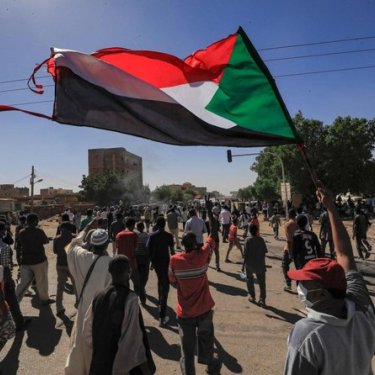RSF Launches an online training program for Sudanese Journalists on physical and digital Safety

In response to the challenges facing journalists in Sudan, Reporters Without Borders (RSF) is launching an online training program to improve the physical and digital safety skills of 12 Sudanese journalists from 9 March 2024.
With the conflict continuing since 15 April 2023, journalists in Sudan are living in a dangerous environment where their safety is threatened on a daily basis. In order to promote the resilience of media professionals, RSF is working with the Sudanese syndicate of journalists to strengthen their skills in physical and digital security.
During the month of March, the online course will enable 12 journalists to acquire the essential knowledge to protect themselves in the difficult environment in which they work on a daily basis. The training will cover key aspects of physical and digital security, taking into account the challenges journalists face in conflict zones. To facilitate their participation in the online training sessions, RSF will also provide Internet access.
"The North Africa Bureau is thrilled to unveil an innovative online training program tailored specifically for Sudanese journalists, addressing the pressing need for enhanced physical and digital safety skills amidst the ongoing challenges and perils in Sudan. With a keen awareness of the urgent necessity to arm journalists with vital tools for self-protection in this conflict-ridden landscape, we are committed to providing personalised follow-ups and support despite the logistical hurdles. Through robust collaboration with the Sudanese Journalists Union and unwavering dedication, our mission is clear: to empower journalists with the resilience and capabilities needed to navigate their profession safely, ensuring they can continue their crucial mission of providing information in Sudan.
For almost a year, Sudanese journalists have been trying to do their job in dramatic conditions, risking arrest, assault and even death, as in the case of Sudan Bokra Halima Idris Salim.They are regularly arrested – often with their professional equipment confiscated – and physically attacked, as well as receiving death threats, against a backdrop of increasing hate speech and threats against journalists on social networks. Blacklists are circulating, designating journalists to be assassinated. Journalists, particularly field reporters, are increasingly harassed and prevented from working. According to the Sudanese syndicate of journalists, cases of targeting, surveillance and tracking of journalists have forced them to conceal their profession to avoid being recognised.
Strengthening the impact of trainers in a challenging environment
"The current situation in Sudan is tragic, and the frequent disruptions of internet and electricity are far from allowing normal conditions and hinder online training," explains RSF-accredited trainer Anas Bendhif, “However, we must adapt to the circumstances, relying on a more flexible approach focused on individual follow-ups for trainees and developing additional videos that can be accessed if the trainee is unable to attend a training session."
Anas Bendhif, the trainer accredited by Reporters Without Borders
RSF made every effort to provide optimal conditions for the success of this training, including selecting and signing contracts with the trainer, ensuring internet access, in coordination with the Sudanese Journalists Union, despite the current context in Sudan, which poses significant real-world challenges. Several cities in Sudan face frequent power outages, sometimes lasting for days, and the same applies to the Internet network, which has become a scarce commodity in Sudan.
In this challenging context, RSF's initiative aims to empower trainers to have a global impact and enhance their personal safety amid the civil war. It creates resilient trainers who can cope with adversities and ensure a safer environment for journalists in Sudan.
